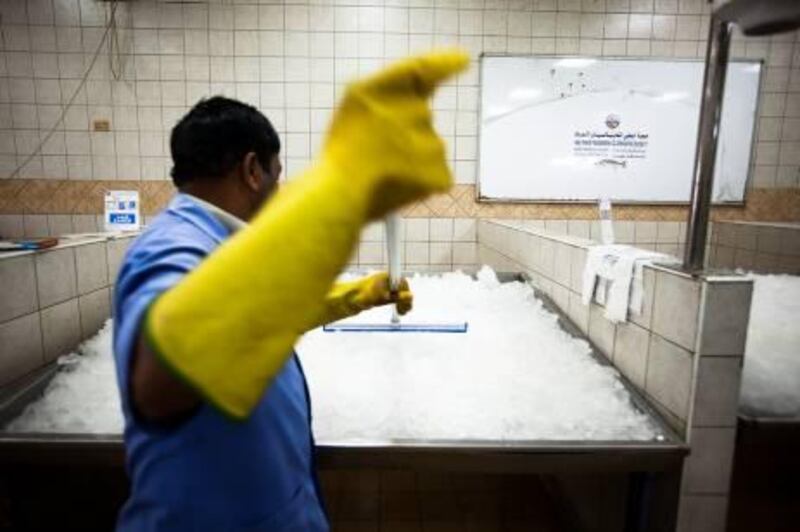Dubai is planning to bring in expert consultants to ensure all food is kept under safe conditions all the way from farm to fork.
While five-star hotels generally have tight controls and in-house hygiene officers, smaller shops and restaurants usually do not.
But they serve far more meals, making it all the more important to ensure they are properly equipped and regulated, according to Bashir Yousif, the municipality's food safety expert.
___________
Also
• Experts warn over highly contagious norovirus
• Food poisoning in more than 100 causes hospital emergency
• D'Souza children's deaths not caused by food, officials say
• Chef to pay blood money over children's deaths
• Diner died after eating seafood and duck liver
___________
"The controls in these smaller premises may not be as good as larger tourist outlets," said Richard Sprenger, the chairman of Highfield Awarding Body for Compliance Middle East and Asia, a British food safety awarding association.
"So it's really critical to focus on them and find out why."
The planned initiative is intended to make sure food is kept correctly at every stage of transportation and storage.
Restaurants, hotels, dairy farms, catering services and grocery stores will have to appoint a municipality-approved safety expert to check at each stage that the food is kept at the required temperature and free from contamination.
The same requirements will apply across all outlets and to imported food. "It will involve any business that requires equipment, from chillers to refrigeration, because they need adequate material from A to Z," said Mr Yousif.
Staff will be trained to use refrigeration equipment appropriately to avoid cross-contamination. They will also be taught not to overload refrigerated lorries, which can result in overheating.
In some cases, outlets will need to be told what equipment they need to buy. With the wrong gear for the job, food spoils easily - at great expense, said Mr Yousif.
He did not specify a start date for the initiative but said it would happen "in the near future".
Dubai and Abu Dhabi's dependence on tourism make safety all the more urgent, said Mr Sprenger. "You can't have a reputation for causing food poisoning and illness," he said. "It's bad for tourism."
Humidity is often a problem with frozen food in the UAE, because moisture even in a refrigerated area can reduce shelf life.
"What needs to be regulated is the danger zone of food storage between 5C and 60C because it can produce toxins and bacteria," said Mr Yousif.
According to Ghaleb Abusaa, a refrigeration expert, most fruit should be stored between 3C and 5C and vegetables at 10C. Frozen food should be transported and sold at -18C.
Potatoes should be kept at 0C - but no lower, as their starch breaks down into sugar and the tubers become discoloured.
Ravi Chandran, the general manager of Epicure Catering Services and Health Factory, said one transportation issue was the power of the vehicle's refrigeration system. If the system is underpowered, ice can easily build up, eventually causing it to stop working.
"There are no shortcuts in this business, one degree more or less can really make a difference," he said.
He admits his company needs new refrigerated lorries, as the ones it has now stay chilled only for the first hour of a delivery run, "a problem for many customers".
Transportation is definitely the weakest link in the chain, added Bhasat Asarpota, the maintenance manager of Emarat, which owns 85 C-Store and Bakeria convenience stores in the UAE.
Loraine Hughes, the technical manager of Food Point, part of Emirates Airline's catering division, echoed that point, adding that "not many individuals are aware of its importance".
There is an environmental challenge, too. Refrigeration, according to Ms Hughes, "represents 15 per cent of the world's energy consumption - a number that needs to be reduced".
One solution is propane gas, currently used as a natural refrigeration alternative in Kuwait.






